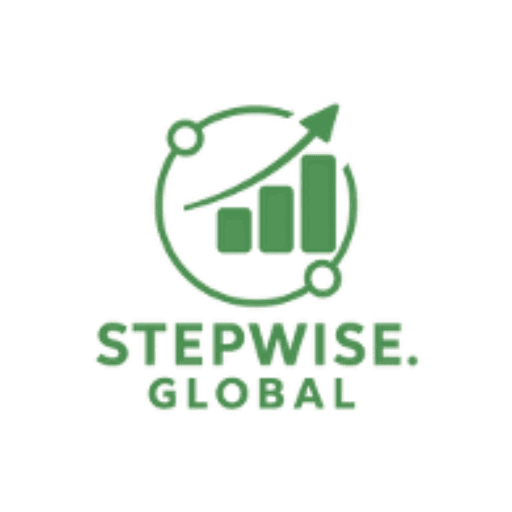Kalle reflects on FSSD informed AI as Defense Against Bad Data
Kalle reflects on good vs. bad data for AI assisted FSSD
Takeaway for leaders at all levels everywhere
How are good vs. bad data managed as our AI engine collects inputs to support the Framework for Strategic Sustainable Development (FSSD)? The short answer: by design. FSSD Global’s operative system—often called “ABCD in the Funnel”—functions as an absolute code for systemic, systematic, and strategic sustainable development. It helps teams ask the right, crystal-clear questions and prioritize decisions that are scalable within the sustainability constraints of our biosphere and society. In practice, that means the framework itself acts as a filter that distinguishes good vs. bad data. When paired with sector-level analyses and peer-reviewed case studies, this creates a robust data foundation for AI-assisted strategy and innovation.
More in detail:
How the FSSD filters good vs. bad data
The ABCD-in-Funnel method is built on the FSSD’s sustainability principles—sometimes described as boundary conditions that must be met in a sustainable society. Think of the “Funnel” as a metaphor for tightening constraints: over time, the room for unsustainable practices shrinks. The ABCD process helps organizations move from today’s reality toward future-fit operations and offerings that thrive within those constraints.
– A: Co-create a vision of success modelled within the robust boundary conditions for any sustainable future.
– B: Map the current state relative to that vision and the boundary conditions.
– C: Generate possible actions that can bridge the gap.
– D: Prioritize actions from C into a stepwise plan for maximum progress and return of each step.
Because these steps are guided by absolute sustainability principles (for example, eliminating organizational contributions to systematic increases of substances from the Earth’s crust in nature), they naturally filter out data and ideas that are not scalable in the long term. Either an idea, practice, or metric aligns with these boundary conditions—or it doesn’t. In this sense, the code itself is the first line of defense against bad data, and a catalyst for surfacing good data that supports systemic, future-fit decision-making.
The “absolute code” and practical decision-making
Calling the ABCD-in-Funnel system an “absolute code” does not mean it hands you ready-made answers. Instead, it ensures you ask the right questions—and can answer them if the necessary competence is in the room. The code clarifies whether a proposed initiative reduces violations of the sustainability principles, and whether it can scale without causing future lock-ins or unintended consequences. The outcome is sharper, more reliable data selection: information that points toward scalable value creation is elevated; information that excuses or perpetuates systemic problems is deprioritized.
Strategic trade-offs: the “sustainability chess” analogy
What about context and trade-offs? Can an organization make short-term compromises to secure long-term sustainability success—like sacrificing a chess piece to win the game? Yes. The ABCD-in-Funnel method is built to handle this nuance. It acknowledges that some interim steps may not be perfect, yet can be justified if they are:
– Flexible platforms for future improvements
– Moving the organization closer to full alignment with the sustainability principles
– Economically sound and risk-reducing over time
This is where good vs. bad data also plays out. Data supporting short-term actions must be judged not only on immediate outcomes, but on whether it strengthens or weakens the organization’s pathway to full-scale sustainability. The framework helps teams avoid data that rationalizes dead ends and prioritize data that supports strategic stepping-stones.
Sector analyses: a second line of defense against bad data
Beyond organizational use, experts in the Swedish Stepwise group and related networks have applied the ABCD-in-Funnel lens to entire sectors—energy, transport, agriculture, forestry, materials, infrastructure, HR, and more—as if each were a single organization. These “sector-analyses” assemble:
– Illustrative future visions (A) that meet sustainability principles
– Current-state maps (B) highlighting critical gaps and risks
– Action portfolios (C) that can bridge from B to A
– Strategic prioritizations (D) based on feasibility, return, and scalability
Many of these analyses include modeling, including quantitative methods that test the scalability and risk profile of proposed measures. For organizations operating within these sectors, the result is a rich body of context-specific, pre-filtered knowledge. Ideas that are clearly non-scalable for an entire sector are flagged early as high-risk for individual companies. Conversely, opportunities that are robust at the sector level become strong candidates for investment and innovation.
Case studies and action research: role models for implementation
A third safeguard comes from peer-reviewed case studies and action research. Across public and private organizations globally, teams have used FSSD to tackle complex challenges—from product redesign and supply chain shifts to policy development and infrastructure planning. These cases become accessible data points in the AI’s knowledge base:
– They demonstrate how the ABCD steps work in real contexts
– They provide evidence for what accelerates or stalls progress
– They offer tested examples of strategic trade-offs and sequencing
By drawing on these role models, the AI can surface creative, context-aware suggestions that complement the absolute code and sector insights. This triangulation—principle-based filtering, sector-level context, and real-world evidence—reduces noise and amplifies good vs. bad data differentiation.
What this means for your organization
When you run an ABCD workshop or use FSSD Global’s platform, you benefit from three aligned layers of intelligence:
1) The absolute code, which filters information through sustainability principles and strategic prioritization
2) Sector-level insights, which help you gauge scalability and risk within your operating context
3) Case-based learning, which provides practical patterns and inspiration from peers
Financially, this alignment translates into clearer signals about risk and return. Ideas that scale within sustainability constraints tend to carry lower long-term risk and stronger opportunity for competitive advantage. Conversely, innovations that “look good” but break the principles—at the organization or sector level—are flagged as high-risk, potentially doomed bets. This is how the framework, augmented by AI, elevates data quality and strategic clarity.
Conclusion: managing good vs. bad data in AI assisted FSSD
In AI assisted FSSD, the management of good vs. bad data starts with the ABCD-in-Funnel as an absolute code, continues with sector-analyses that test scalability and risk, and is further validated by peer-reviewed case studies from real organizations. Together, these layers ensure the AI highlights information that supports systemic progress and screens out data that locks you into unsustainable pathways. The result is smarter strategy, better innovation, and a disciplined path toward long-term success within the sustainability principles—precisely the purpose of FSSD Global’s platform and practice.
A later reflection on social bubbles outlines how whole communities can agree on the above as a shared mental model for even faster, safer and more powerful progress.
All hot topic Reflections are direct consequences of our Operative System.
For a deeper dive into the science behind the Operative System that informs all Reflections, see the peer-reviewed Open-Source paper with all its references: doi.org/10.1002/sd.3357. For the full title, see footnote below.
Or, for concluding reflections, practical insights and training, click on “Kalle Reflects” to see all reflections.
If you need any further advice, perhaps getting some further references, please send a question to us from the homepage.
Footnote: Broman, G. I., & Robèrt, K.-H. (2025). Operative System for Strategic Sustainable Development―Coordinating Analysis, Planning, Action, and Use of Supports Such as the Sustainable Development Goals, Planetary Boundaries, Circular Economy, and ScienceBased Targets. Sustainable Development, 1C16.

